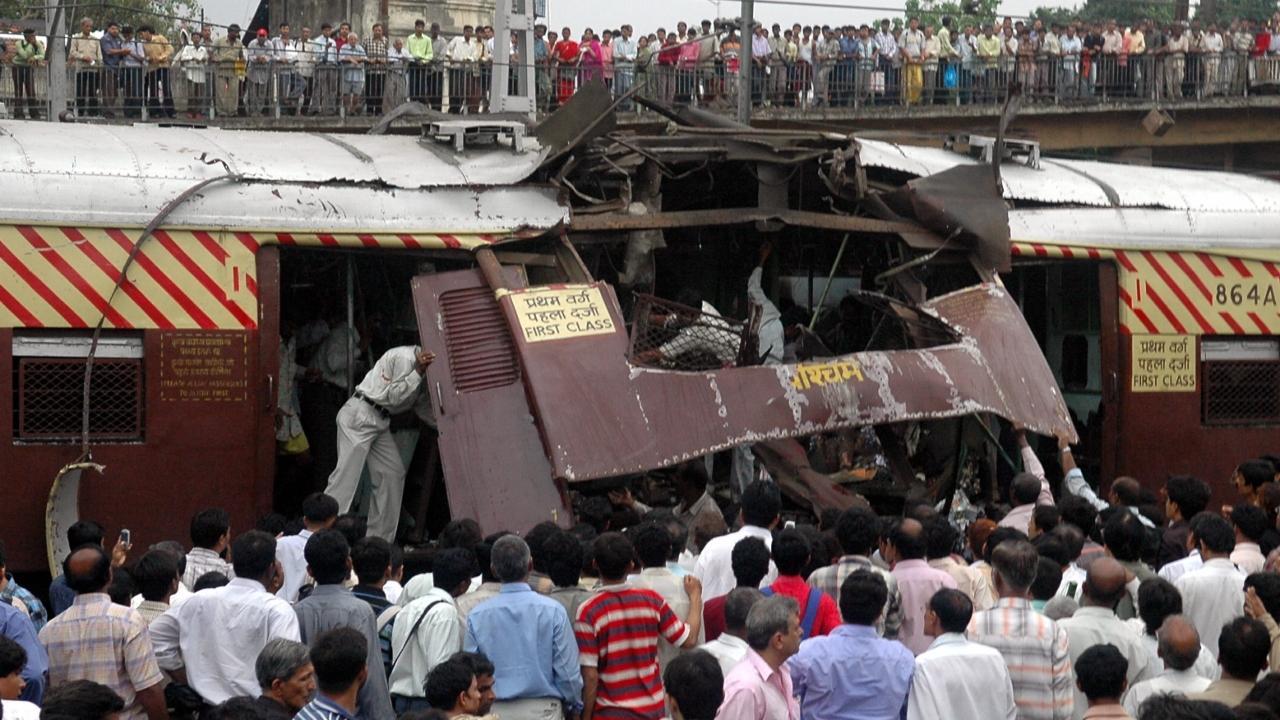Home / Mumbai / Mumbai News / Article /
Remembering 2006 Mumbai train bombings: When terror halted city's lifeline
Updated On: 10 July, 2024 05:52 PM IST | Mumbai | mid-day online correspondent
The blasts, targeting first-class suburban train compartments, resulted in halting the lifeline of Mumbai

The attack targeted Mumbai`s suburban railway line. Pic/mid-day archives
The catastrophic train bombings in Mumbai in on July 11, 2006, left a lasting impression on the city`s history. That was the day that terror attacked Mumbai`s vital infrastructure, the city`s busy local train system. During the evening rush hour, a sequence of well-planned explosions caused havoc on the packed suburban Mumbai local trains. The city was engulfed in turmoil and grief as a result of the explosions that happened on local trains operating on the Mumbai local trains` Western and Central lines.
That day, after the explosions, the Mumbai local trains—which are referred to be Mumbai`s lifeline—became scenes of terror and destruction.



